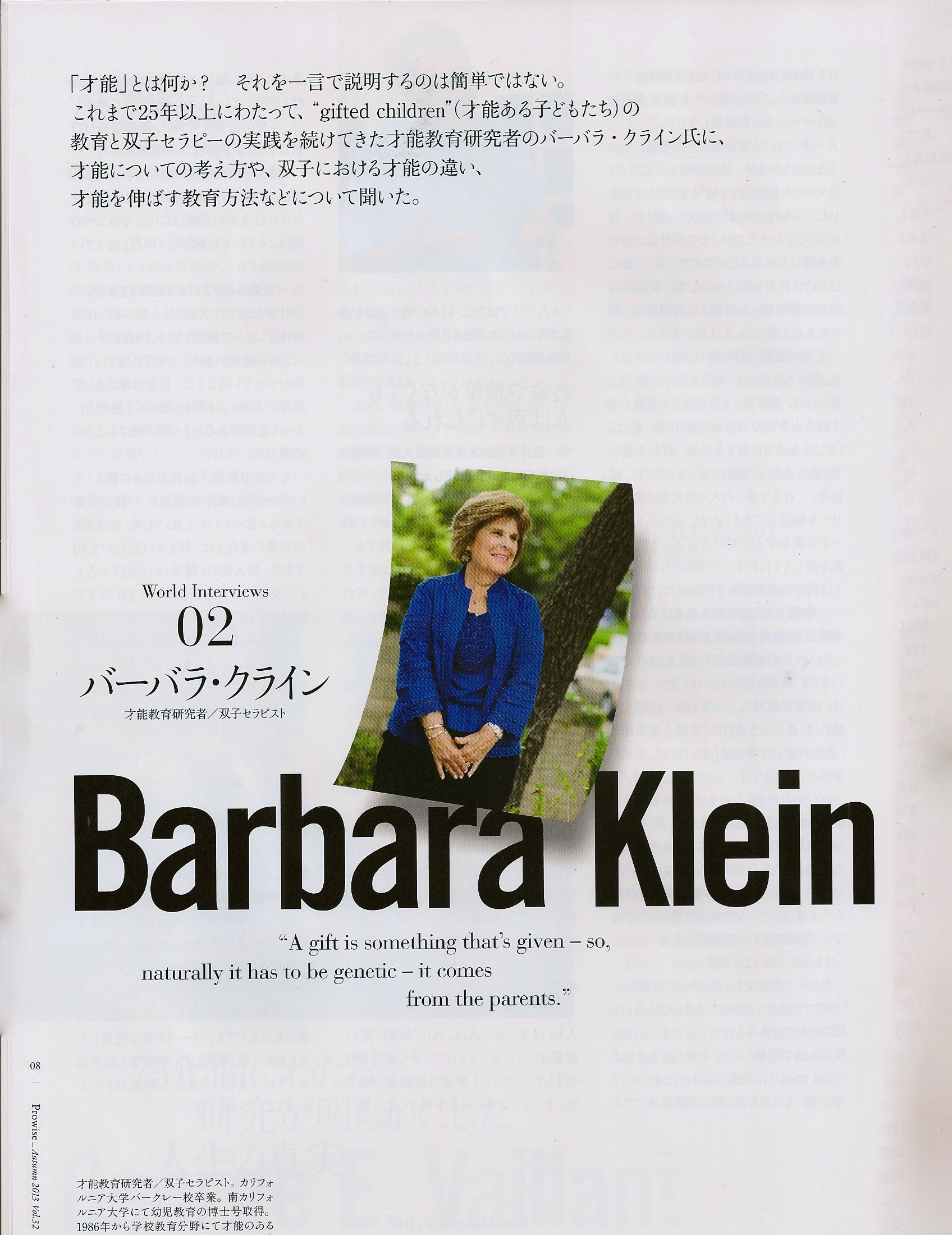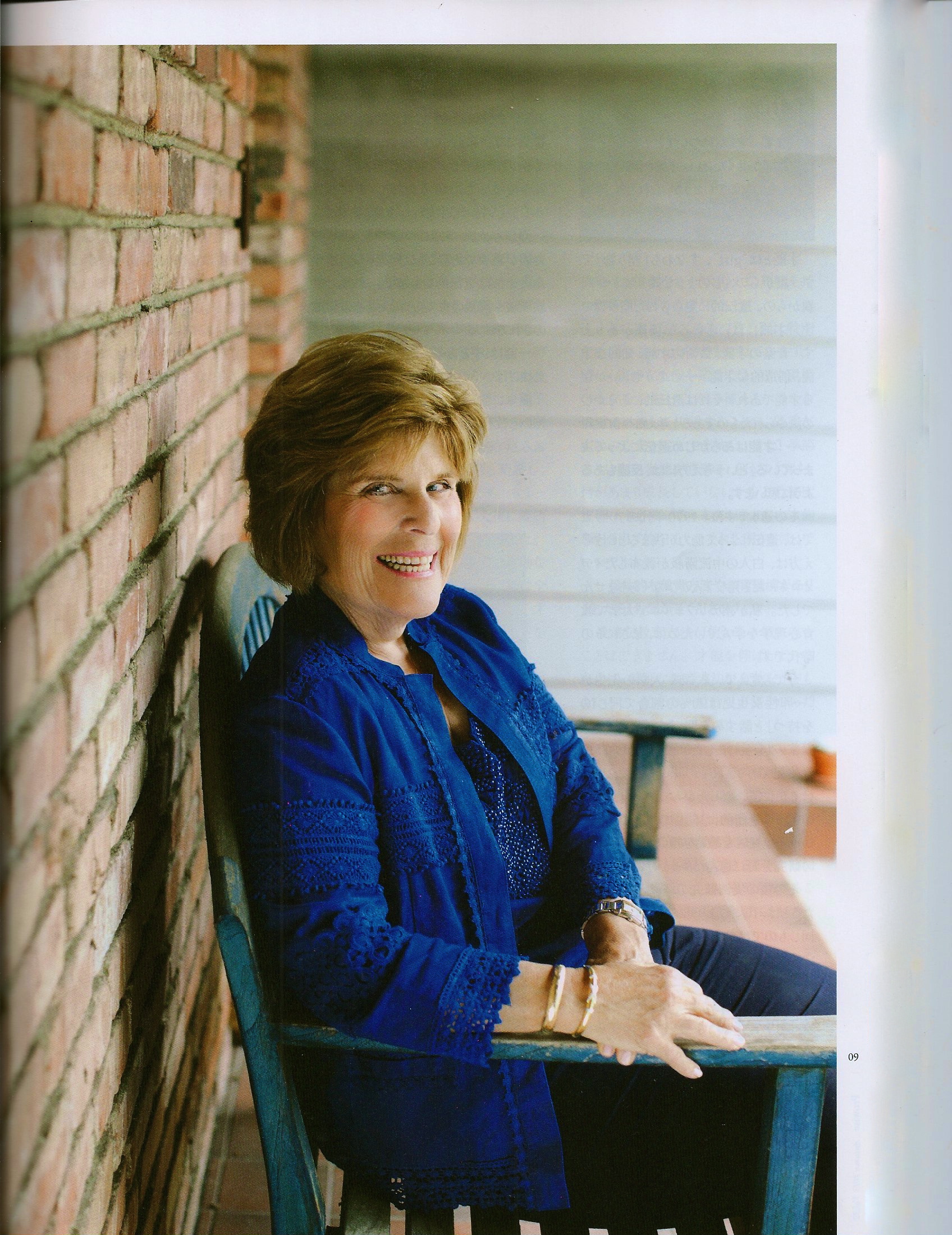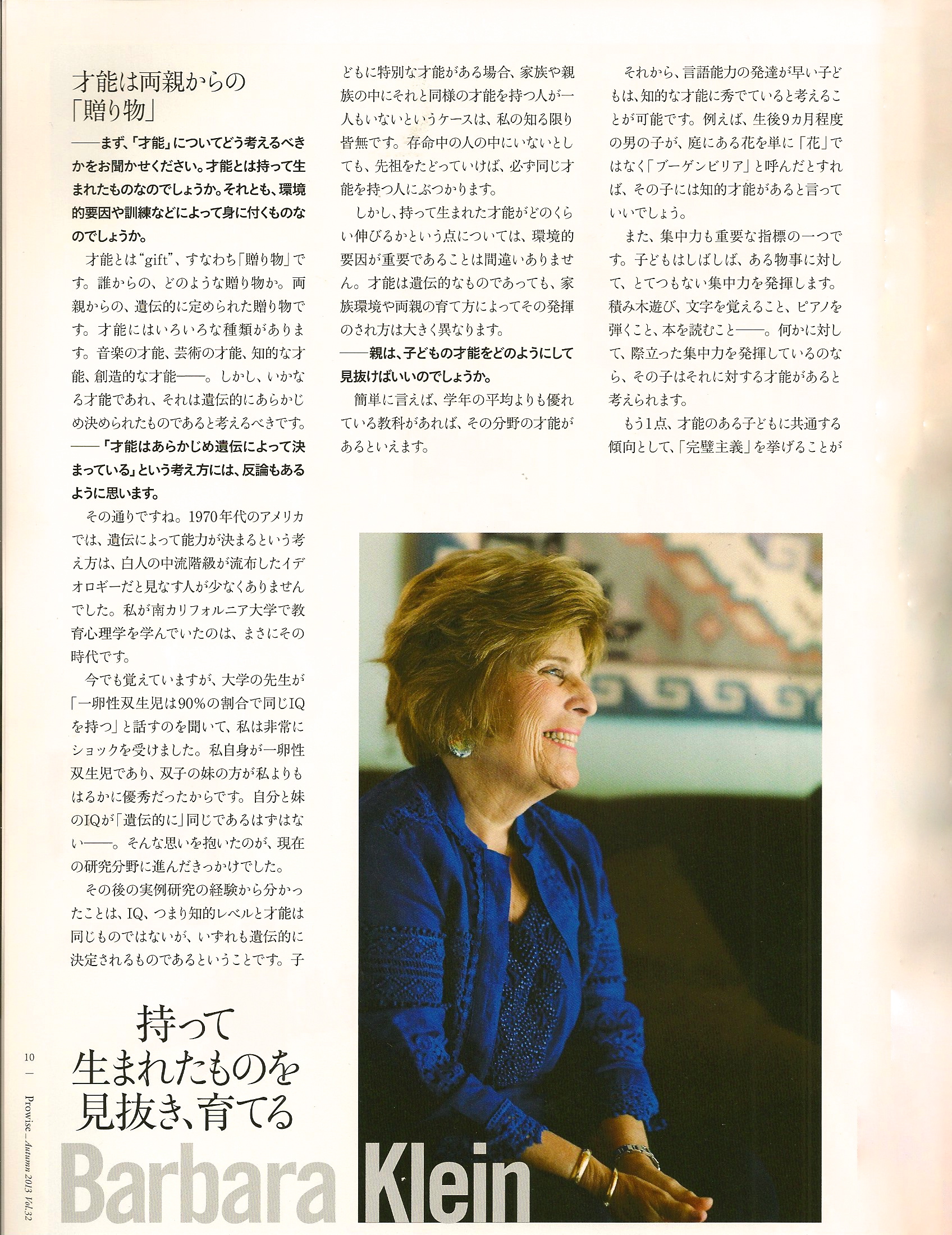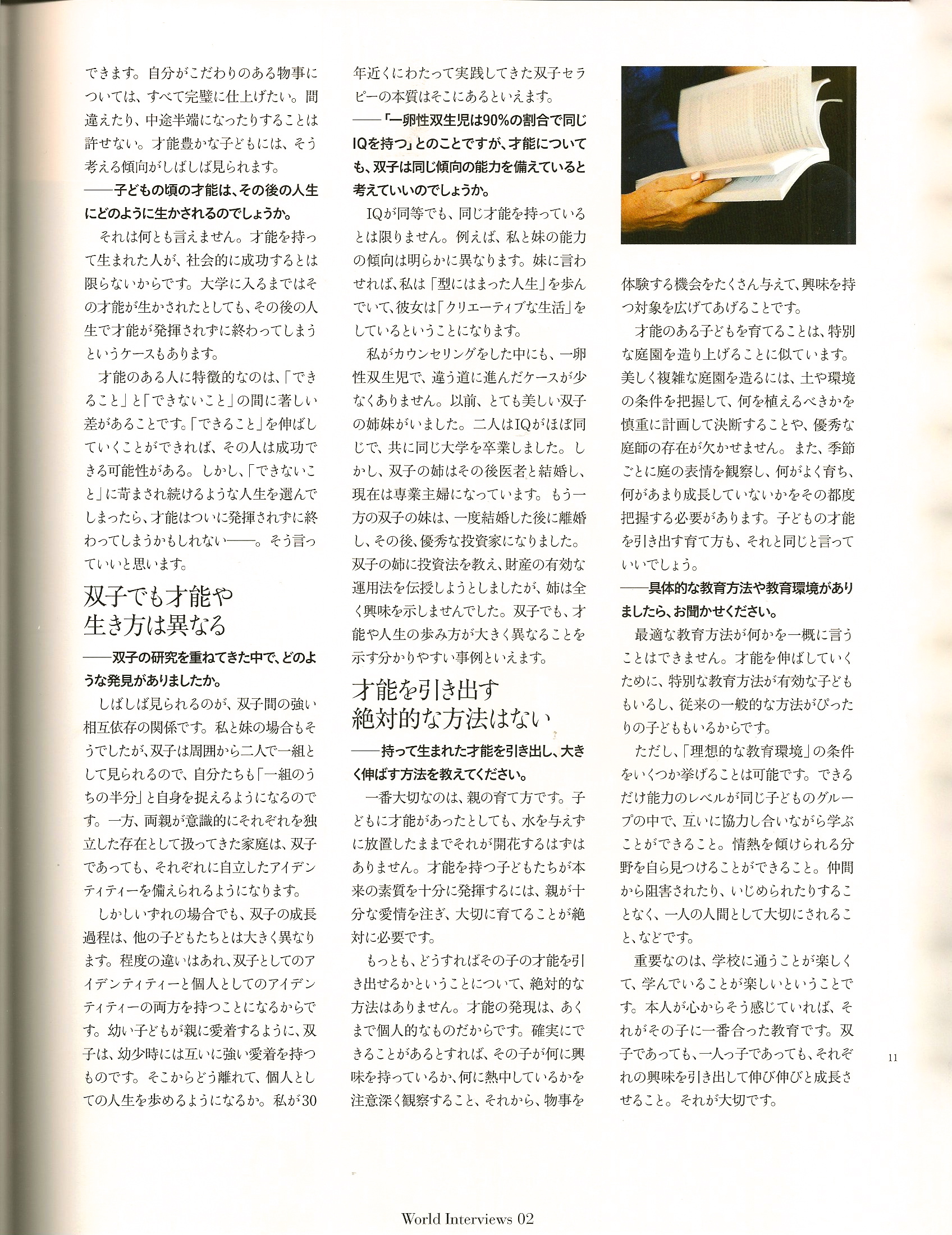Discover the Gift You Are
Born With,
Then Nurture It
Prowise magazine in Japan interviewed me because of my experience with gifted children and adults and twins. Hitachi Solutions was the sponsor/publisher, and the publication was edited and printed by Nikkei BP Consulting.
Q. Please tell us how we should understand one’s “gift”? Is it something you are born with? Or is it something nurtured in the environment or by training?
A. A gift is something that’s given – so, naturally it has to be genetic – it comes from the parents. A gift is a special ability to do something – and there are so many different kinds of gifts – not just one kind of gift. Musical gifts, artistic gifts, intellectual gifts – imagination, creativity – so, it’s a very broad spectrum of abilities. But, I think it definitely is genetically determined.

Q. What should parents look for to identify giftedness?
A. You can determine giftedness simply by whether the child is able to perform two or three years above their grade-level. One of the common intelligence tests currently used was developed by Alfred Binet. This method looks at the child’s age in relation to the child’s ability. In general, I think it’s fair to say that the child who’s achieving above grade-level in a particular area, that is a good indication of his giftedness.
One of the attributes of giftedness are the verbal skills. For example, a 9-months old boy calls flowers in the backyard “bougainvilleas,” not just “flowers;” you can probably say that this child is gifted. Ability to focus is another important point. Often children will show tremendous capacity for concentration. Playing with blocks, learning the alphabet, playing piano, reading books, etcetera. Whatever the interest may be, if a child shows remarkable ability to focus, it may be an indication of giftedness.
Another thing is perfectionism. If the task is something the child is interested in, it’s important for him to master that task perfectly and completely, without any mistakes. You will often see that tendency in gifted children.

Q. Could you tell us how one can develop the gift?
A. I think that parenting in number one. Giftedness is not a flower that magically blooms without water. The gifted child must be nurtured, with much love and care, to reach his or her true potential.
There isn’t one sure way to develop the gift. It really depends on the individual. The most valuable source of information will be your child’s interest and inclinations. Encourage your child to find his or her passions. Provide the opportunity to experience many different things and expand their interests.
Raising a gifted child is like planting and caring for a special garden. Beautiful and complicated gardens need gardeners who make careful decisions about what to plant, given the soil quality and environmental conditions. A garden has to be reevaluated after each growing season, after the gardener gets a sense of what is doing well and what is not thriving. Nurturing the giftedness is very similar to that.

Q. Is there any particular educational methods or settings for gifted children?
A. It’s hard to prescribe just one method. There are children who would be better suited for particular methods. There are others who are perfectly suited in a traditional setting. But I can give you some different examples of ideal educational environments. For example, learning in groups with peers in similar intellectual levels. By working together, they learn from each other. The children are allowed to explore their passions – and they’re not ostracized or bullied – they’re treated as the whole child.
What’s important is that they’re happy at school – and they’re happy learning what they’re learning. That’s when you know you have the right match. Whether you are a twin or an only child, encourage them to develop a passion and expand their wings. That’s what’s important.

